HMRC waives penalties again for late self-assessment
Anyone who missed last month’s self-assessment deadline has until 28 February 2022 to file their tax returns online before being fined.
HMRC said last month that fines would not be enforced on taxpayers who missed the 2020/21 deadline at midnight on 31 January 2022.
The tax authority said COVID-19 had piled added pressure on individuals and tax advisers to beat the original deadline for online submissions.
It is the second successive tax year that such a decision has been taken on self-assessment penalties, due to the pandemic.
Anyone who could not pay their tax bill by 31 January 2022 has until 1 April 2022 to either pay their liability in full, or set up a time-to-pay arrangement.
A 5% late-payment penalty will be charged if tax is not paid or a payment plan has not been set up by midnight on 1 April 2022.
Interest, however, continues to accrue at 2.75% on any outstanding liabilities from 1 February 2022 onwards.
Angela MacDonald, deputy chief executive at HMRC, said:
“We know the pressures individuals and businesses are again facing this year, due to the impacts of COVID-19.
“Waiving penalties for one month gives self-assessment taxpayers extra time to meet their obligations.”
The late-filing penalties (daily penalties from three, six and 12 months) will operate as usual from 1 March 2022.
Get in touch to discuss self-assessment.
Omicron-hit employers can reclaim statutory sick pay
Small and medium-sized employers can reclaim money from the Treasury to cover statutory sick pay (SSP) paid to employees with COVID-19.
Chancellor Rishi Sunak reintroduced the SSP rebate scheme last month, after it initially closed on 30 September 2021.
It forms part of a series of measures announced to support businesses affected by the new wave of COVID-19 infections caused by the Omicron variant.
The scheme means employers with fewer than 250 employees can get SSP reimbursed for COVID-related absences, for up to two weeks per worker.
Most employers have to pay SSP of £96.35 a week to employees who are off sick or isolating for more than four consecutive days, including non-working days.
The cost of providing SSP is one of employers' main concerns, with reports claiming they face the prospect of up to a million absences in the first months of 2022.
Mike Cherry, chairman at the Federation of Small Businesses, said:
“This will reduce stress for small employers up and down the country, helping those who are
struggling most with depleted cashflow.
“It’s vital that small firms – once again up against a massively disrupted festive season – can reclaim the costs of supporting staff.”
Talk to us about managing payroll.
Treasury’s pensions tax relief bill soars past £42bn
The costs involved with providing pensions tax relief are predicted to have increased to £42.7 billion in 2020/21, according to HMRC.
Forecasts for the 2020/21 tax year showed another steady annual rise, following estimates of £41.3bn in 2019/20 and £38.2bn in 2018/19.
The 2020/21 figure of £42.7bn was split between £22.9bn in income tax and £19.8bn in National Insurance contributions.
Taxpayers receive this relief at their marginal rate of income tax, meaning those in the basic-rate band get 20% relief, rising to 40% and 45% in the higher and additional-rate bands.
Meanwhile, employer contributions to occupational schemes got £21.1bn in relief during 2019/20, £8.6bn of which went to the public sector.
The data also showed that employer tax relief on contributions to defined-benefit pensions increased by £400m to £15bn over the four years to 2019/20, while tax relief on contributions to defined-contribution schemes increased £4bn to £11.6bn.
The official data reignites speculation that Chancellor Rishi Sunak could be tempted once again to cut one of the Treasury’s most costly burdens.
However, the headline figure of how much pensions tax relief “costs” masks a multitude of underlying factors.
Steve Cameron, pensions director at Aegon, said:
“The figure mixes employer and employee contributions and to date, suggestions for pensions tax relief reform have focussed on employee tax relief, although moving to a flat rate might require higher-rate taxpayers to have employer contributions taxed as a benefit-in-kind to avoid a salary-
sacrifice loophole.
“The other major factor is defined benefit versus defined contribution [pension schemes].
“Reforms will be particularly complex for defined benefit but omitting the latter would be grossly unfair and would also significantly reduce any ‘saving’ for the Treasury.”
Contact us about any aspect of pensions.
Deadline looms for new hospitality and leisure grants
Eligible businesses in England have until the end of this month to apply for the new Omicron hospitality and leisure grants.
The Treasury announced more support for hospitality, leisure and accommodation businesses before Christmas last year.
Chancellor Rishi Sunak said at that time the new grant scheme was part of a new support package worth £1 billion.
That followed hospitality and leisure firms being hit by a collapse in bookings amid consumer concerns over the spread of Omicron.
According to Hospitality UK, many of these businesses reported lost trade in December 2021 – often their most profitable month – of 40-60%.
Restaurants, bars, cinemas and theatres in England have until an specified date in February 2022, determined by local authorities, to apply for a grant of up to £6,000 for each of their premises.
The Treasury has set aside an initial £683 million for these firms and it will be provided under existing council-run schemes.
The scheme is based on business rates. Firms with a rateable value of up to £15,000 will be eligible for grants of up to £2,700.
Those with a rateable value from £15,000 to £51,000 will be eligible for grants of up to £4,000.
Those with rateable values over £51,000 can get the £6,000 grants, so larger chains will be the ones to benefit from the top end of this support.
To receive funding, businesses must have been trading on 30 December 2021 and be the current ratepayer in occupation of business premises appearing on the local rating list on the same date.
Successful applicants will receive their grants on or before 31 March 2022.
Speak to us about managing cashflow.





